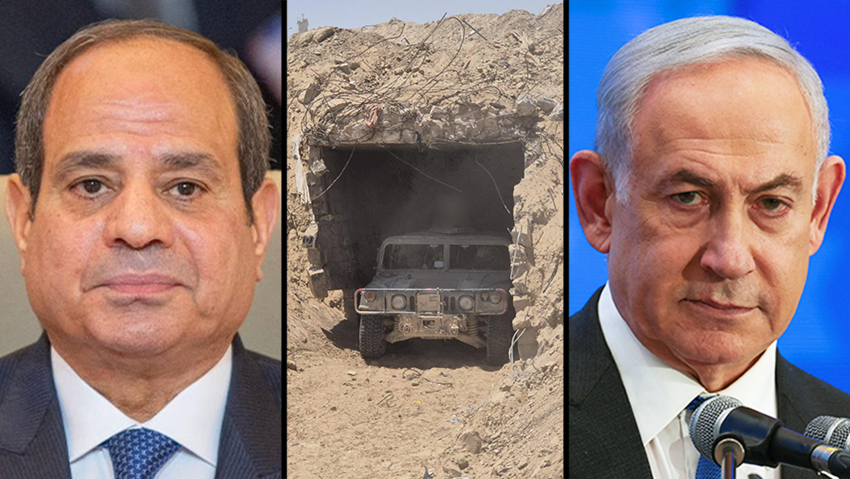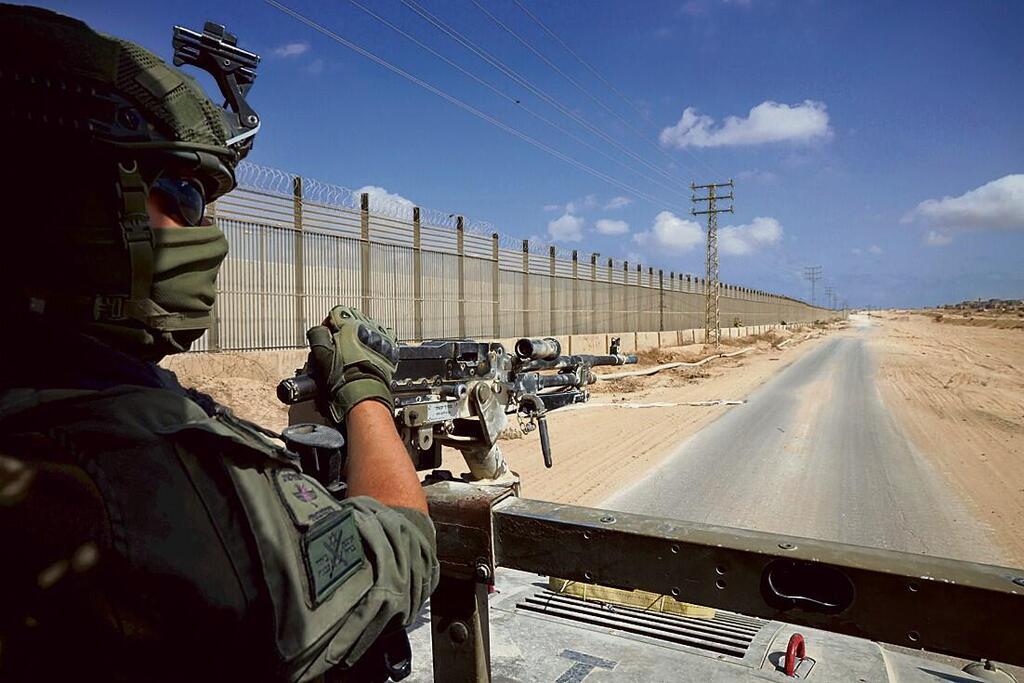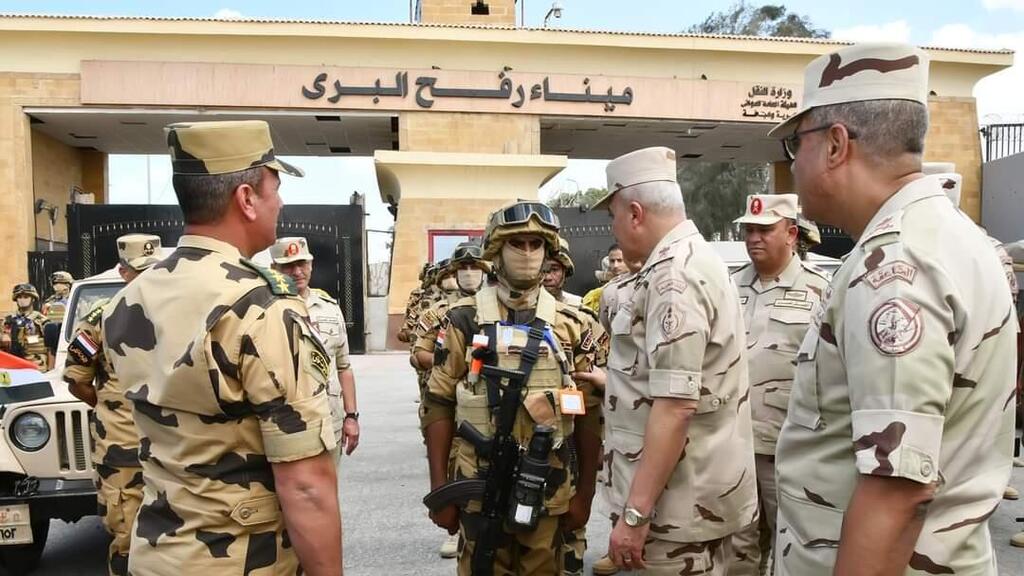According to American reports, despite the Egyptian insistence the IDF withdraw from the Philadelphi Corridor at the first stage of the deal, Cairo may agree to an extended IDF presence if the U.S. guarantees it is temporary. Cairo also asked the Americans to guarantee that Israel would not operate again in the axis or the Rafah Crossing, even if the second phase of the negotiations reached an impasse.
3 View gallery


Egypt refuses to maintain Israeli presence on Philadelphi Corridor
(Photo: REUTERS/Ronen Zvulun, דובר צה"ל , Saudi Press Agency/Handout / Brendan SMIALOWSKI / AFP)
Meanwhile, the Wall Street Journal reported that Egypt agreed to build a new barrier along the axis, including sensors and security cameras, financed by the U.S. Another point of contention is Israel's access to the data from the planned border.
A senior Egyptian official who’s closely following the cease-fire and hostage deal talks in Cairo clarified during August in a conversation with Ynet, "We won’t agree to an Israeli military presence along the Philadelphi Corridor. This has been our stance from the start of the negotiations, and we have no intention of changing it."
The official, however, added, "I won’t comment on the introduction of Israeli surveillance and monitoring equipment along the route." In other words, the senior official in Cairo refused to clarify whether Egypt intends to silently approve the establishment of electronic devices for Israeli supervision along the route.
The Egyptian official emphasized the U.S. is making optimistic statements despite the significant challenges remaining before a deal is secure.
"The Americans intend to maintain a businesslike, perhaps even positive, atmosphere between senior officials from Egypt and Israel,” the official said. ”But Netanyahu’s influence is felt in the negotiation room; we know he receives real-time updates from the talks."
Egypt's chief of military staff Ahmed Fathy Khalifa arrived at the Egyptian border crossing to Gaza at Rafah last week, on a surprise visit to his troops there. Egyptian television said the general's visit was to "secure the nation's borders in all strategic directions."




